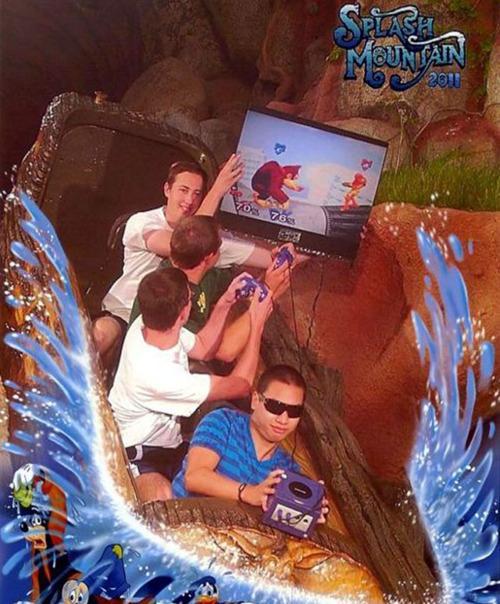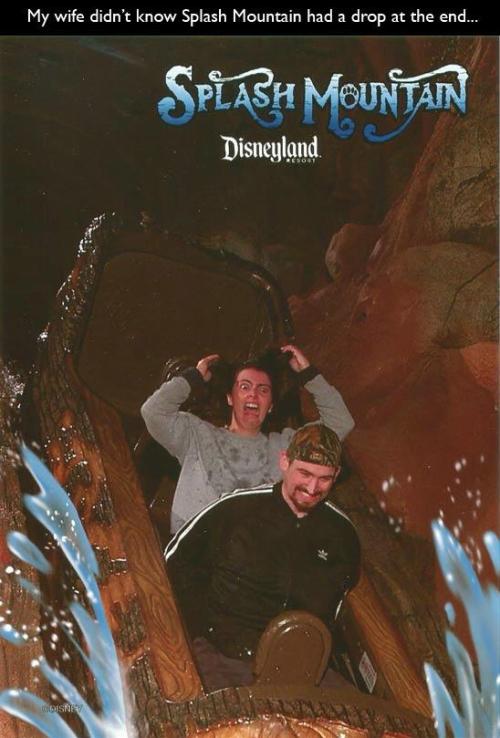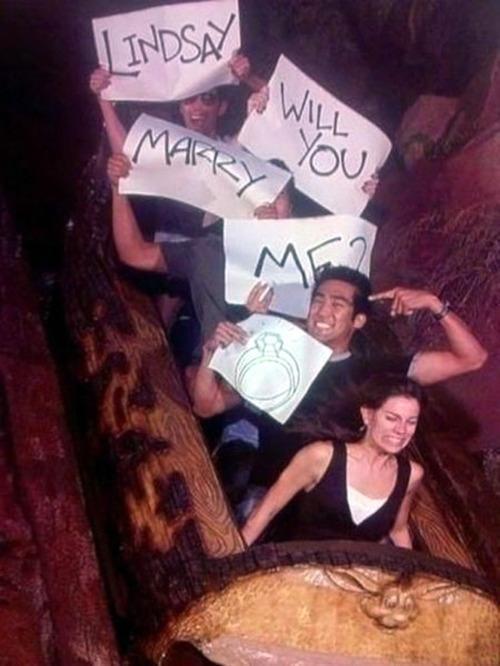Worldbuilding: Questions To Consider
Worldbuilding: Questions to Consider
Government & authority:
Types of government: What type of government exists (monarchy, democracy, theocracy, etc.)? Is it centralised or decentralised?
Leadership: Who holds power and how is it acquired (inheritance, election, divine right, conquest)?
Law enforcement: Who enforces the laws (military, police, magical entities)?
Legal system: How are laws made, interpreted, and enforced? Are there courts, judges, or councils?
Laws:
Criminal laws: What constitutes a crime? What are the punishments?
Civil laws: How are disputes between individuals resolved?
Cultural norms: How do customs and traditions influence the laws?
Magic/supernatural: Are there laws governing the use of magic or interaction with supernatural beings?
Social structure:
Class/status: How is society divided (nobility, commoners, slaves)? Are there caste systems or social mobility?
Rights & freedoms: What rights do individuals have (speech, religion, property)?
Discrimination: Are there laws that protect or discriminate against certain groups (race, gender, species, culture)?
Economy & trade:
Currency: What is used as currency? Is it standardised?
Trade laws: Are there regulations on trade, tariffs, or embargoes?
Property laws: How is ownership determined and transferred? Are there inheritance laws?
Religion/belief systems:
Religious authority: What role does religion play in governance? Are religious leaders also political leaders?
Freedom of religion: Are citizens free to practice different religions? If not, which are taboo?
Holy laws: Are there laws based on religious texts or teachings?
Military & defense:
Standing army: Is there a professional military or a militia? Who serves, and how are they recruited?
War & peace: What are the laws regarding war, peace treaties, and diplomacy?
Weapons: Are there restrictions or laws regarding weapons for civilians? What is used as a weapon? Who has access to them?
Technology & magic:
Technological advancements: How advanced is the technology (medieval, steampunk, futuristic, etc.)?
Magical laws: Are there regulations on the use of magic, magical creatures, or artifacts?
Innovation & research: How are inventors and researchers treated? Are there laws protecting intellectual property?
Environmental/resource management:
Natural resources: How are resources like water, minerals, and forests managed and protected, if at all?
Environmental laws: Are there protections for the environment? How are they enforced? Are there consequences for violations?
Cultural & ethical considerations:
Cultural diversity: How does the law accommodate or suppress cultural diversity?
Ethics: What are the ethical foundations of the laws? Are there philosophical or moral principles that underpin them?
Traditions vs. change: Does the society balance tradition with progress? How?
Happy writing ❤
Previous | Next
More Posts from Totallynotobsessedspades and Others
So... I found this and now it keeps coming to mind. You hear about "life-changing writing advice" all the time and usually its really not—but honestly this is it man.
I'm going to try it.

some people think writers are so eloquent and good with words, but the reality is that we can sit there with our fingers on the keyboard going, “what’s the word for non-sunlight lighting? Like, fake lighting?” and for ten minutes, all our brain will supply is “unofficial”, and we know that’s not the right word, but it’s the only word we can come up with…until finally it’s like our face got smashed into a brick wall and we remember the word we want is “artificial”.

I am so very normal about this
Question!!! But how do I integrate subtlety into my writing? Like I have a hard time picking up on it and I annoyingly have a tendency to tell not show, so I wanted to know if you have any advice!
Writing with More Subtlety
-- Getting the hang of "showing vs telling" is a great place to start if you want to integrate subtlety into your writing. Saying, "Moonlight glinted off the lake," is more subtle than, "The moon was shining."
Guide: Showing vs Telling
-- Learning to evoke emotion and ambiance with sensory description is another way to write with more subtlety. After all, saying, "The house was scary looking," is not as subtle as, "Thick fog curled around the decaying timbers of the once grand Victorian home."
Horror by Darkness Horror by Daylight
-- Knowing what internal and external cues can be used to illustrate your characters' feelings is also helpful, because, "Sarah was sad," is not as subtle as, "Tears pooled in the corners of Sarah's eyes, and she bit her upper lip to keep it from quivering."
Showing a Character's Feelings The Subtle Signs of Romantic Interest and Love
-- Learning to weave details into your story is also helpful, as it's more subtle to work details in naturally than to do a big info dump.
Weaving Details into the Story
-- Finally, learn to drop hints rather than declare something outright.
Dropping Hints without Giving Everything Away
I hope that helps!
•••••••••••••••••••••••••••••••••
I’ve been writing seriously for over 30 years and love to share what I’ve learned. Have a writing question? My inbox is always open!
LEARN MORE about WQA
SEE MY ask policies
VISIT MY Master List of Top Posts
COFFEE & FEEDBACK COMMISSIONS ko-fi.com/wqa
how do you write a liar?
How to Write Liars Believably
Language
The motive of every goal is the make the lie seem plausible while taking blame off the speaker, so liars will often project what they say to a third party: "Katie said that..."
Referring to third parties as "they" rather than he or she
In the case of a deliberate lie prepped beforehand, there will be an overuse of specific names (rather than pronouns) as the speaker tries to get the details right.
Overuse of non-committal words like "something may have happened"
Masking or obscuring facts like "to the best of my knowledge" and “it is extremely unlikely," etc.
Avoiding answers to specific, pressing questions
Voice
There's isn't a set tone/speed/style of speaking, but your character's speech patten will differ from his normal one.
People tend to speak faster when they're nervous and are not used to lying.
Body Language
Covering their mouth
Constantly touching their nose
fidgeting, squirming or breaking eye contact
turning away, blinking faster, or clutching a comfort object like a cushion as they speak
nostril flaring, rapid shallow breathing or slow deep breaths, lip biting, contracting, sitting on your hands, or drumming your fingers.
Highly-trained liars have mastered the art of compensation by freezing their bodies and looking at you straight in the eye.
Trained liars can also be experts in the art of looking relaxed. They sit back, put their feet up on the table and hands behind their head.
For deliberate lies, the character may even carefully control his body language, as though his is actually putting on a show
The Four Types of Liars
Deceitful: those who lie to others about facts
2. Delusional: those who lie to themselves about facts
3. Duplicitious: those who lie to others about their values
Lying about values can be even more corrosive to relationships than lying about facts.
4. Demoralized: those who lie to themselves about their values
Additional Notes
Genuine smiles or laughs are hard to fake
Exaggerations of words (that would normally not be emphasized) or exaggerated body language
Many savvy detectives ask suspects to tell the story in reverse or non-linear fashion to expose a lie. They often ask unexpected, or seemingly irrelevant questions to throw suspects off track.
pls give me 1(one) reason aces have ever been oppressed, and 1(one) example of aces being a part of lgbt history(before 2004 at least) and then maybe i’ll consider the idea that aces belong in the lgbt community lol
How to Improve Your Dialogue
As an editor, one of the biggest problems I see in beginning fiction writers’ dialogue is a lack of conflict.
(Come to think of it, one of the biggest problems I see in general is a lack of conflict, but that’s another post.)
Good dialogue, like a good story, should be rich with conflict. There are exceptions – most notably in a story’s ending or in brief, interspersed moments when you want to slow down the pace. But as a general guideline, dialogue without conflict gets boring very quickly. Here’s a classic example:
“Hi,” Lisa said. “Hey,” José said. “How are you?” “Fine. You?” “Doing all right.” Lisa handed José a turkey sandwich. “Would you like a sandwich? I made two.” “Sure, thanks.”
Okay, that’s enough. I won’t continue to torture you. Not only is there no conflict between the two characters who are speaking, but there’s no conflict anywhere to be seen.
The bad news is that if you write something like this you will bore your reader to tears.
The good news is that there are lots of ways to add conflict to dialogue. Once you know how to do it, you can make just about any scene pop with tension.
Of course, you don’t want to add conflict just for the sake of conflict. Whatever conflict you choose should be relevant to the story as a whole, to the scene, and to the characters.
Here’s my first tip: Have your characters say “No” to each other
One of the easiest ways to give conflict to a scene like this is to have your characters say No to each other, metaphorically speaking. In other words, to push back against the first character instead of just agreeing with them and refuse to have the conversation on the terms that the other character is proposing.
This is sometimes called giving characters different scripts.
Doing this creates an immediate power struggle that not only creates a more interesting story but can be really fun to play with. Here’s an example of how this idea could improve the scene between Lisa, Jose, and the sandwich:
“Hi,” Lisa said. “You forgot the mustard,” José said. Lisa thrust the turkey sandwich across the counter. “I’m fine, thanks. How are you?” “I don’t want it.” “I already made two. You should’ve said something earlier.”
Did you catch all the “No”s in that dialogue? Here it is again with my notes:
“Hi,” Lisa said. [Lisa is offering a friendly exchange.] “You forgot the mustard,” José said. [José refuses the offer and changes the subject.] Lisa thrust the turkey sandwich across the counter. “I’m fine, thanks. How are you?” [Lisa refuses to change the subject to the mustard, offers the sandwich as-is, and – bonus points – answers a question that hasn’t been asked.] “I don’t want it.” [José refuses to take the sandwich that’s been offered. Interestingly, though, he doesn’t try to take the power back in the situation by offering a new proposal, so he opens himself to a power grab from Lisa.] “I already made two. You should’ve said something earlier.” [Lisa acknowledges what José has said, but refuses to give into him by, for example, offering to make him another sandwich, add the mustard, etc.]
A big improvement, right? Dialogue like this makes us lean in and ask: What’s happening? Why are Lisa and José so testy with each other? What’s going to happen next? Will they make up? Will they come to blows?
If a scene like this comes midway through a story, we might already know that José is mad at Lisa because she didn’t come to the opening of his play last Saturday, and that Lisa, let’s say, has a bad temper and a history of throwing punches at José, in which case the dialogue becomes a great example of subtext.
Instead of having Lisa and José talk directly about the issue at hand (also called on-the-nose dialogue), we watch how the tension surfaces in their everyday interactions.
We get to become observers – flies on the wall – to their dramatic experience. In classic terminology, we are shown and not told the story.
Another thing to notice about this example is the use of gesture to enhance the dialogue’s conflict. Notice how when Lisa thrusts the turkey sandwich across the counter, it gives us information about her emotional state and implies a tone for the rest of her lines that we can hear without having to resort to clunky devices like “Lisa said sarcastically,” “Lisa said bitterly,” etc.
I have a few more tips about how to add conflict to your dialogue, but I will save it for another post. Hope this helps!
/ / / / / / /
@theliteraryarchitect is a writing advice blog run by me, Bucket Siler, a writer and developmental editor. For more writing help, download my Free Resource Library for Fiction Writers, join my email list, or check out my book The Complete Guide to Self-Editing for Fiction Writers.
ᴛɪᴘꜱ ꜰᴏʀ ᴡʀɪᴛᴇʀꜱ [ꜰʀᴏᴍ ᴀ ᴡʀɪᴛᴇʀ]
don't let your skill in writing deter you. publishers look for the storyline, not always excellent writing. many of the greatest books came from mediocre writers—and also excellent and terrible ones.
keep writing even when it sucks. you don't know how to write this battle scene yet? skip ahead. write [battle scene here] and continue. in the end, you'll still have a book—and you can fill in the blanks later.
find your motivation. whether it's constantly updating That One Friend or posting your progress, motivation is key.
write everything down. everything. you had the perfect plot appear to you in a dream? scribble down everything you can remember as so as you can. I like to keep cue cards on my nightstand just in case.
play with words. titles, sentences, whatever. a lot of it will probably change either way, so this is the perfect opportunity to try out a new turn of phrase—or move along on one you're not quite sure clicks yet.
explain why, don't tell me. if something is the most beautiful thing a character's ever laid eyes on, describe it—don't just say "it's beautiful".
ask for critique. you will always be partial to your writing. getting others to read it will almost always provide feedback to help you write even better.
stick to the book—until they snap. write a character who is disciplined, courteous, and kind. make every interaction to reinforce the reader's view as such. but when they're left alone, when their closest friend betrays them, when the world falls to their feet...make them finally break.
magic. has. limits. there is no "infinite well" for everyone to draw from, nor "infinite spells" that have been discovered. magic has a price. magic has a limit. it takes a toll on the user—otherwise why can't they simply snap their fingers and make everything go their way?
read, read, read. reading is the source of inspiration.
first drafts suck. and that's putting it gently. ignoring all the typos, unfinished sentences, and blatant breaking of each and every grammar rules, there's still a lot of terrible. the point of drafts is to progress and make it better: it's the sketch beneath an oil painting. it's okay to say it's not great—but that won't mean the ideas and inspiration are not there. first drafts suck, and that's how you get better.
write every day. get into the habit—one sentence more, or one hundred pages, both will train you to improve.
more is the key to improvement. more writing, more reading, more feedback, and you can only get better. writing is a skill, not a talent, and it's something that grows with you.
follow the rules but also scrap them completely. as barbossa wisely says in PotC, "the code is more what you'd call 'guidelines' than actual rules". none of this is by the book, as ironic as that may be.
write for yourself. I cannot stress this enough. if what you do is not something you enjoy, it will only get harder. push yourself, but know your limits. know when you need to take a break, and when you need to try again. write for yourself, and you will put out your best work.
^ fish in a birdcage mention ‼️
francis forever (mitski)
in the same boat (the lightning thief musical)
open arms (epic)
safe and sound (Taylor swift)
wouldn’t you like (epic)
bourgeoisieses (Conan gray)
my grand plan (the lightning thief musical)
flowers (hadestown)
i’m not that girl (wicked)
a loving feeling (mitski)
yeahhh this is a pretty accurate representation of my music taste
@writer-of-random-things (third notif just for funsies) @rosy-cozy-radio and anyone else!
tagged by @agentofchaosx thank uuuu!!
Rules: Shuffle your "On Repeat" playlist and post the first 10 songs, then tag 10 friends!
Rush - Troye Sivan
I Think We're Alone Now - Tiffany
Pink Pony Club - Chappell Roan
Good Luck, Babe! - Chappell Roan
Sharks - Imagine Dragons
Talk Fast - 5 Seconds of Summer
De Shelby (Part 2) - Hozier
Guess - Charli xcx, Billie Eilish
so american - Olivia Rodrigo
Where Did The Party Go - Fall Out Boy
@dontknowanythingohwell @rinoune42 @thecommonmold @froginabogg @thenerdybard @soupdrinkinglincoln @snailsandstrawberries @absolutefilthimsosorry @denizoid @thatskeletonbitch if you guys want, or not tagged people please join in if you want to do it!
-
 writethisdownmkay reblogged this · 1 month ago
writethisdownmkay reblogged this · 1 month ago -
 flowerbedflashbacks liked this · 1 month ago
flowerbedflashbacks liked this · 1 month ago -
 myheartismadeofstars liked this · 1 month ago
myheartismadeofstars liked this · 1 month ago -
 aethesfaelibrarae reblogged this · 1 month ago
aethesfaelibrarae reblogged this · 1 month ago -
 aethesfaelibrarae liked this · 1 month ago
aethesfaelibrarae liked this · 1 month ago -
 laggtrain reblogged this · 1 month ago
laggtrain reblogged this · 1 month ago -
 whalevillain liked this · 1 month ago
whalevillain liked this · 1 month ago -
 kaedehcras liked this · 1 month ago
kaedehcras liked this · 1 month ago -
 oculuis reblogged this · 1 month ago
oculuis reblogged this · 1 month ago -
 oculuis liked this · 1 month ago
oculuis liked this · 1 month ago -
 data-datum liked this · 1 month ago
data-datum liked this · 1 month ago -
 wispymelodii liked this · 1 month ago
wispymelodii liked this · 1 month ago -
 onixieisawriterrr liked this · 1 month ago
onixieisawriterrr liked this · 1 month ago -
 rovinwrites liked this · 1 month ago
rovinwrites liked this · 1 month ago -
 heartcalculator liked this · 1 month ago
heartcalculator liked this · 1 month ago -
 thesleepdeprivedwriter09 liked this · 1 month ago
thesleepdeprivedwriter09 liked this · 1 month ago -
 amazingfandommomarch liked this · 1 month ago
amazingfandommomarch liked this · 1 month ago -
 troubledworldwriter reblogged this · 1 month ago
troubledworldwriter reblogged this · 1 month ago -
 xluckytheninjax liked this · 1 month ago
xluckytheninjax liked this · 1 month ago -
 ghost-koix reblogged this · 1 month ago
ghost-koix reblogged this · 1 month ago -
 crimsonrain-spirits liked this · 1 month ago
crimsonrain-spirits liked this · 1 month ago -
 lordofshibas reblogged this · 1 month ago
lordofshibas reblogged this · 1 month ago -
 lordofshibas liked this · 1 month ago
lordofshibas liked this · 1 month ago -
 tls123-none liked this · 1 month ago
tls123-none liked this · 1 month ago -
 newdawnhorizon reblogged this · 1 month ago
newdawnhorizon reblogged this · 1 month ago -
 spookie-stories reblogged this · 1 month ago
spookie-stories reblogged this · 1 month ago -
 cleooiix liked this · 1 month ago
cleooiix liked this · 1 month ago -
 insomnicatvibes reblogged this · 1 month ago
insomnicatvibes reblogged this · 1 month ago -
 insomnicatvibes liked this · 1 month ago
insomnicatvibes liked this · 1 month ago -
 sirenc0re liked this · 1 month ago
sirenc0re liked this · 1 month ago -
 sweethoneybear reblogged this · 1 month ago
sweethoneybear reblogged this · 1 month ago -
 sweethoneybear liked this · 1 month ago
sweethoneybear liked this · 1 month ago -
 announcing-anitwit reblogged this · 1 month ago
announcing-anitwit reblogged this · 1 month ago -
 noping-out-of-art reblogged this · 1 month ago
noping-out-of-art reblogged this · 1 month ago -
 noping-out-of-art liked this · 1 month ago
noping-out-of-art liked this · 1 month ago -
 sbirb liked this · 1 month ago
sbirb liked this · 1 month ago -
 butchboyboy liked this · 1 month ago
butchboyboy liked this · 1 month ago -
 thisfashionfish liked this · 1 month ago
thisfashionfish liked this · 1 month ago -
 un-natural-20 reblogged this · 1 month ago
un-natural-20 reblogged this · 1 month ago -
 manicpixel reblogged this · 1 month ago
manicpixel reblogged this · 1 month ago -
 manicpixel liked this · 1 month ago
manicpixel liked this · 1 month ago -
 purplekingdombasement liked this · 1 month ago
purplekingdombasement liked this · 1 month ago -
 tomapoganka reblogged this · 1 month ago
tomapoganka reblogged this · 1 month ago -
 mysticalpersonapsychicegg liked this · 1 month ago
mysticalpersonapsychicegg liked this · 1 month ago -
 alabaster-time-lord liked this · 1 month ago
alabaster-time-lord liked this · 1 month ago -
 aquarian-alex reblogged this · 1 month ago
aquarian-alex reblogged this · 1 month ago -
 mincherries liked this · 1 month ago
mincherries liked this · 1 month ago -
 gemderplantcat liked this · 1 month ago
gemderplantcat liked this · 1 month ago -
 quissleqq liked this · 2 months ago
quissleqq liked this · 2 months ago -
 sleepycreatureinc liked this · 2 months ago
sleepycreatureinc liked this · 2 months ago

90 posts









